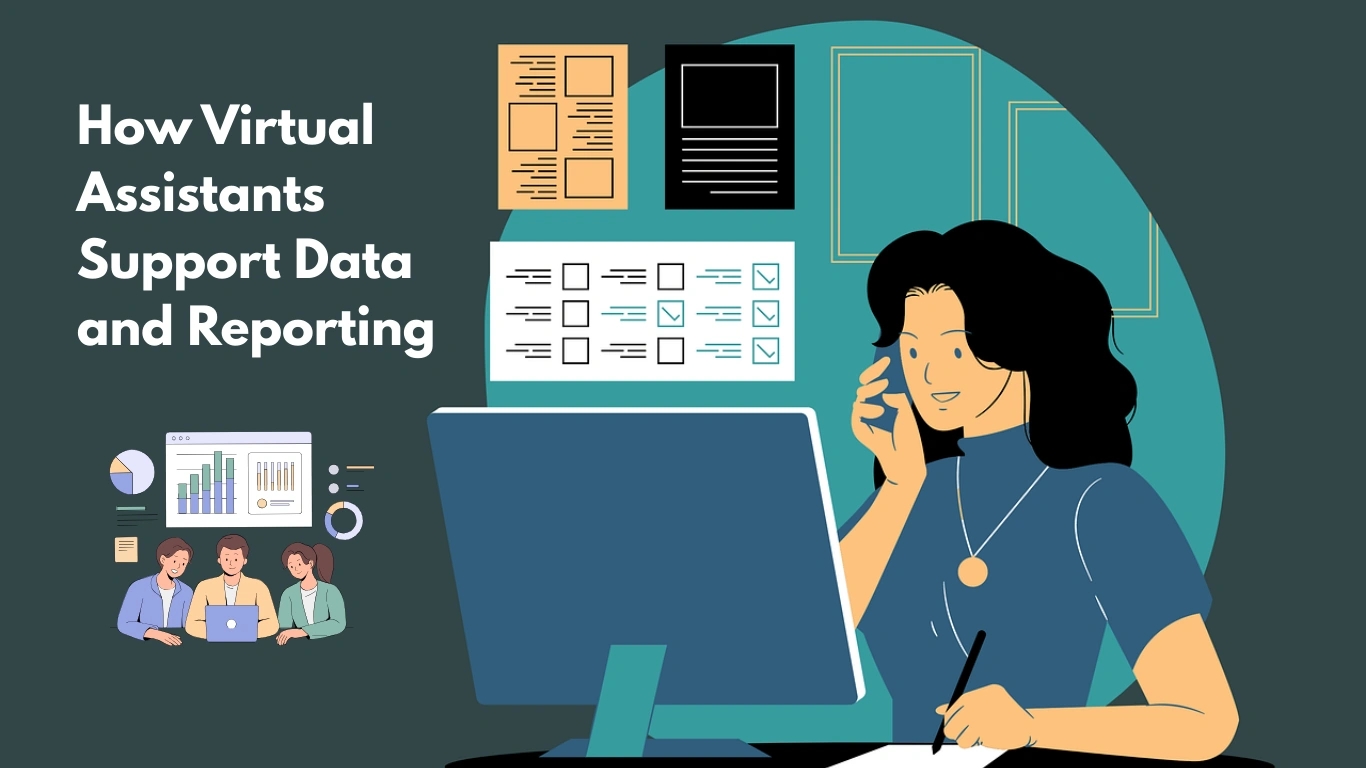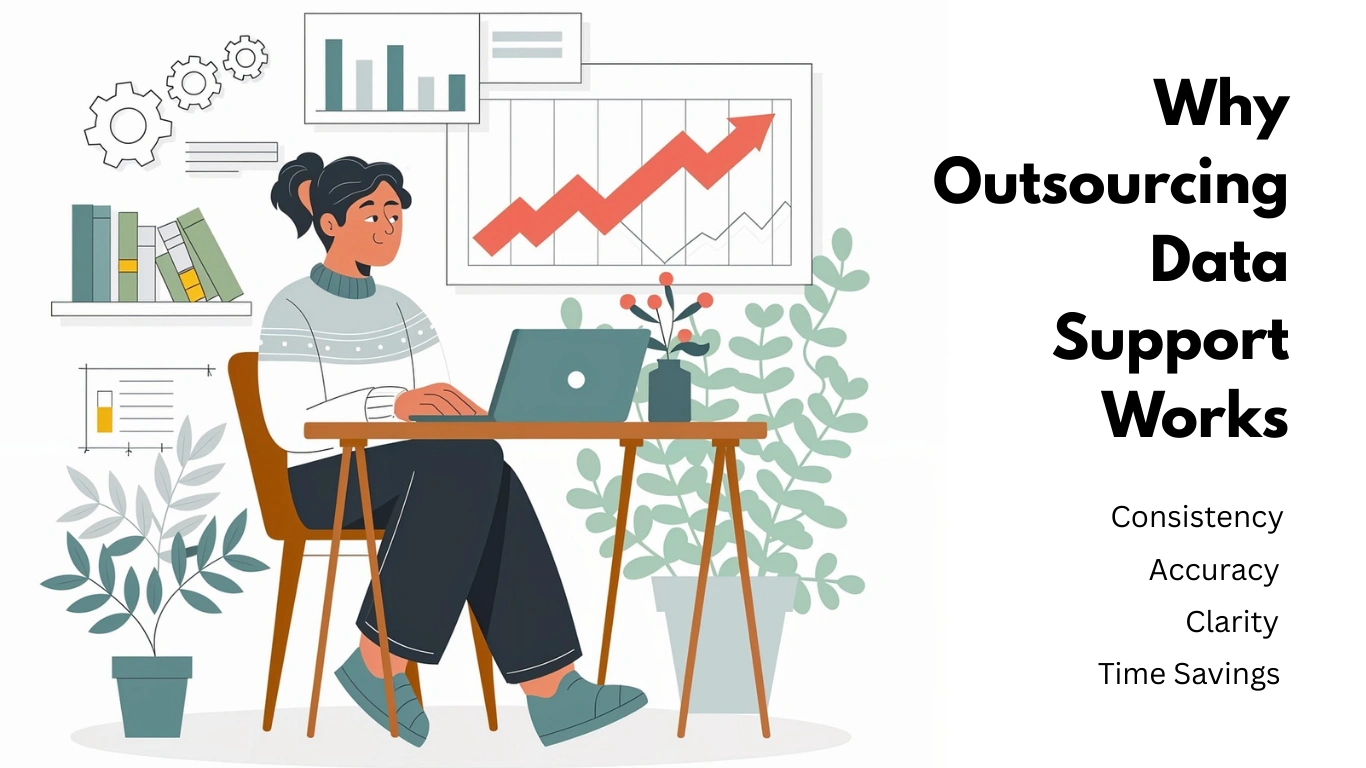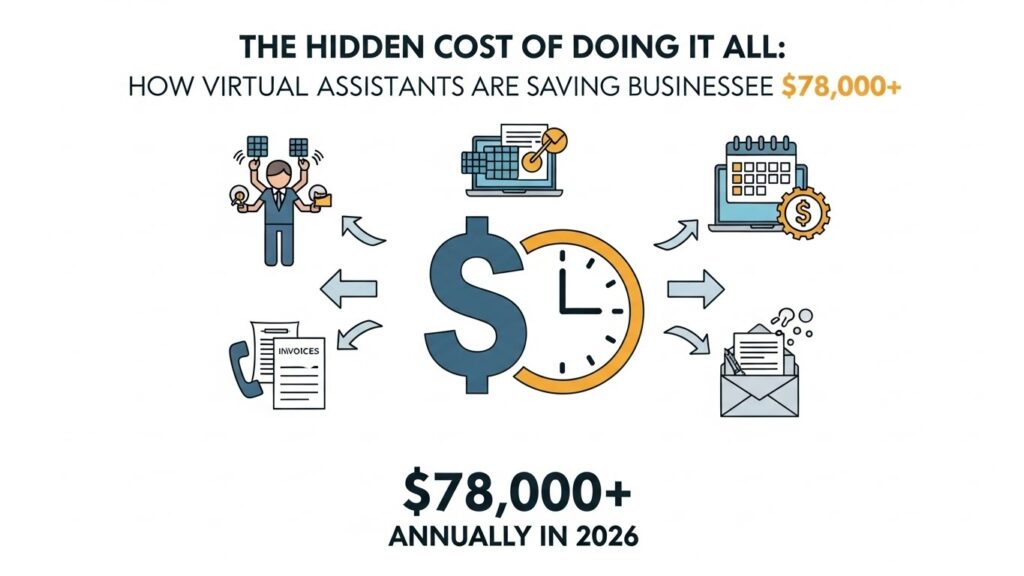In today’s competitive real estate market, success isn’t just about closing deals it’s about using data-driven insights to make smarter business decisions, and that’s exactly where a virtual assistant with data and reporting expertise can give you the edge.
If running a real estate business were only about showing homes and closing deals, it would be much easier. However, that’s not the case. Success in real estate depends on making the right decisions at the right time, and those decisions come from data. From lead sources to closing ratios, every number in real estate tells something about where your business is heading.
The challenge is that most agents are so busy managing clients and paperwork that they don’t have time to dig into data, track KPIs, or build reports. That’s where a real estate virtual assistant with strong data and reporting support can change things for you.
Why Is Data Important in Real Estate?
Data is the foundation of every smart decision you make. Whether it’s marketing, lead follow-up, or transaction timelines, real estate analytics show what’s working and what isn’t.
-
Which ad campaigns are bringing in leads?
-
How many calls turn into appointments?
-
What percentage of deals actually close?
-
How long does it take from first contract to signed contract?
Without real estate business reporting and KPI tracking, it’s easy to waste money on the wrong ads, spend time chasing dead leads, or miss opportunities to improve your process.

How Virtual Assistants Support Data and Reporting
A virtual assistant for real estate who understands reporting organizes, analyzes, and presents information so you can act on it quickly. They:
-
Gather information from CRMs, websites, and ad platforms.
-
Ensure duplicate or incomplete records don’t distort results.
-
Create regular reports on lead sources, conversion rates, and sales.
-
Monitor the numbers that matter most to your business goals.
-
Build visual dashboards that show your progress at a glance.
With this kind of virtual assistant data and reporting support, you don’t waste hours figuring out numbers you just use them to guide your business decisions.
What to Measure in KPI Tracking
Every real estate business is different, but there are real estate KPIs that matter for almost everyone. A VA can track these consistently, so you always know where you stand.
Some examples of KPI tracking for real estate agents include:
-
How many new leads are coming in weekly or monthly.
-
What percentage of leads turn into appointments or clients.
-
How long listings take to sell.
-
Marketing spend per new lead.
-
Deal closure rates vs. deals started.
-
The average income earned per deal.
With these real estate KPI reports, you can quickly see if your efforts are paying off or if you need to make changes.
Also Read: Why Specialized Virtual Assistants Perform Better Than Generalists in Real Estate
How Reporting Improves Decisions
Reports aren’t just random numbers. They bring clarity and a clear path forward. A real estate VA can prepare reports in formats that are easy to understand and actionable.
-
Weekly lead reports show which channels (Facebook ads, referrals, cold calls) bring the best leads.
-
Monthly sales reports highlight revenue trends and seasonal shifts.
Instead of guessing which strategies work, data-driven decisions in real estate give you fewer wasted resources and better outcomes.
How to Get Real-Time Insights from Performance Dashboards
While reports are useful, sometimes you need information at a glance. That’s where performance dashboards for real estate help.
A VA can set up dashboards using:
-
Google Data Studio
-
Microsoft Power BI
-
Tableau
-
CRM Dashboards (HubSpot, Zoho, Salesforce, etc.)
These dashboards provide real-time insights. Want to know how many new leads came in this week, or how your ads are performing right now? Instead of waiting for a monthly report, you can open your dashboard and see the numbers instantly.
How to Turn Data into Action
Data is only valuable if you use it. With the right reporting support for real estate agents, you can turn insights into decisions that grow your business:
-
Marketing Spend: Stop wasting money on ads that don’t generate leads. Shift budget to campaigns with proven ROI.
-
Lead Follow-Up: If reports show leads drop off after the first call, you know exactly where to improve.
-
Time Management: Tracking tasks and closings helps identify bottlenecks.
-
Growth Planning: Revenue trends show when to scale your team or invest in new tools.
This is where real estate virtual assistant services bring massive value, helping you translate numbers into real growth strategies.

Why Outsourcing Data Support Works
You might wonder, why not just do all this yourself? The truth is, many agents try, but it rarely lasts. Tracking KPIs and building reports takes consistency. When you’re busy showing homes, outsourcing data support for real estate makes all the difference.
A VA brings:
-
Consistency: Reports are updated weekly, monthly, or quarterly without fail.
-
Accuracy: Clean data ensures every decision is based on reliable information.
-
Clarity: Instead of spreadsheets full of raw numbers, you get simple dashboards and reports.
-
Time Savings: You focus on clients while your VA handles reporting tasks.
Choosing the Right VA for Data and Reporting
Not every VA has the right skills. When hiring a real estate virtual assistant for reporting and analytics, look for someone who:
-
Has experience with CRMs and analytics tools.
-
Understands how to create simple, actionable reports.
-
Knows how to track KPIs specific to real estate.
-
Can communicate results in plain, useful terms.
The Final Words
Good business decisions in real estate come from having the right information at the right time. When you let a skilled virtual assistant handle reporting, KPI tracking, and dashboards, you get a clear view of your business without being buried in numbers. Instead of fixing problems after they happen, you can make smart choices ahead of time using real estate data reporting. This leads to better marketing, smoother operations, and steady growth.
At Aurora Nexus, we connect real estate professionals with virtual assistants who specialize in analytics and reporting support. With their help, you’ll always have the insights you need to make confident decisions and keep your business moving forward.
Frequently Asked Questions
[rank_math_rich_snippet id=”s-069d1457-e8be-467b-b72f-be1c510dd972″]





2 Responses